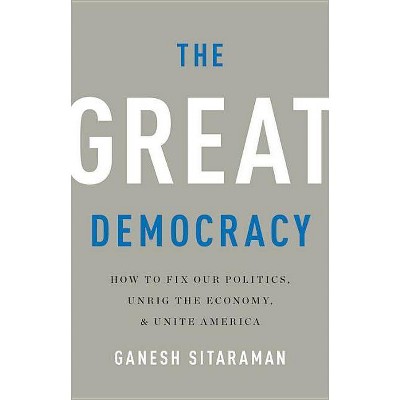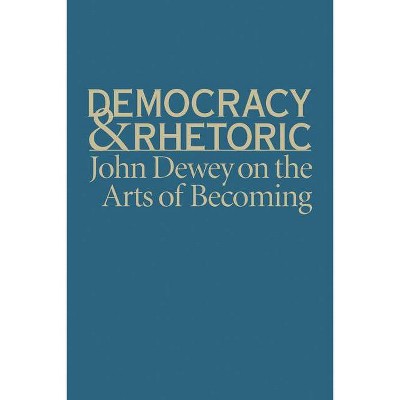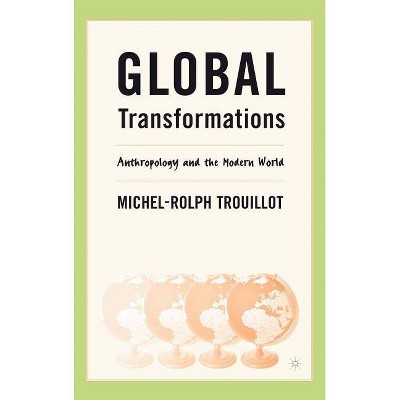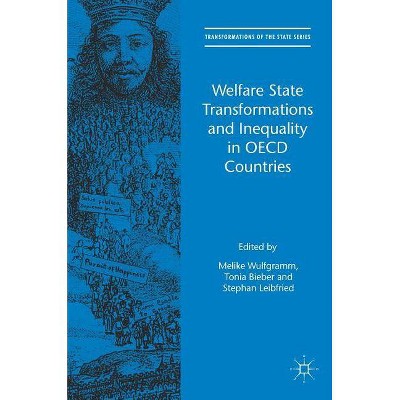Renovating Democracy, 1 - (Great Transformations) by Nathan Gardels & Nicolas Berggruen (Hardcover)
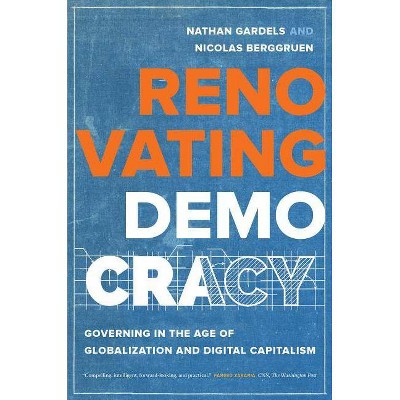
Similar Products
Products of same category from the store
AllProduct info
<p/><br></br><p><b> About the Book </b></p></br></br>"The rise of populism in the West, the rise of China in the East and the spread of peer-driven social media everywhere are prompting a deep rethinking of how democracy works -- or doesn't. The creation of new classes of winners and losers as a result of globalization and digital capitalism are also challenging how we think about global interconnectivity and the social contract. If contemporary democracies are going to take back control and compete with autocratic systems on the world stage while avoiding their own suicide through polarization and paralysis fueled by untrustworthy information, they need a radical renovation that responds to the forces undermining them. Above all, such a renovation must engage the participatory power of social media and the increasing preference of publics for direct democracy by designing new, impartial institutions and practices that interpose a deliberative check against the false claims, misinformation, intolerance and magical thinking that come along with the immediate wash of networked popular sentiment. In short, participation without populism. A new social contract is also necessary that spreads the wealth through an equity share for all through "owning the robots" in a future where intelligent machines are on track to displace labor, depress income and transform the nature of work to an unprecedented degree. Harnessing globalization requires a partnership instead of rivalry with China, the new power of the 21st century"--Provided by publisher.<p/><br></br><p><b> Book Synopsis </b></p></br></br>The rise of populism in the West and the rise of China in the East have stirred a rethinking of how democratic systems work--and how they fail. The impact of globalism and digital capitalism is forcing worldwide attention to the starker divide between the "haves" and the "have-nots," challenging how we think about the social contract. <p/> With fierce clarity and conviction, <i>Renovating Democracy </i>tears down our basic structures and challenges us to conceive of an alternative framework for governance. To truly renovate our global systems, the authors argue for empowering participation without populism by integrating social networks and direct democracy into the system with new mediating institutions that complement representative government. They outline steps to reconfigure the social contract to protect workers instead of jobs, shifting from a "redistribution" after wealth to "pre-distribution" with the aim to enhance the skills and assets of those less well-off. Lastly, they argue for harnessing globalization through "positive nationalism" at home while advocating for global cooperation--specifically with a partnership with China--to create a viable rules-based world order. <p/> Thought provoking and persuasive, <i>Renovating Democracy </i>serves as a point of departure that deepens and expands the discourse for positive change in governance.<p/><br></br><p><b> From the Back Cover </b></p></br></br>"The intellectual framework is compelling, the analysis acute, and the prescriptions intelligent, forward-looking, and practical."--Fareed Zakaria, CNN anchor, <i>Washington Post</i> columnist, and author of <i>In Defense of a Liberal Education</i> <p/> "Offers welcome antidotes to the polarization and paralysis that threatens our society."--Walter Isaacson, University Professor of History at Tulane, author of <i>Leonardo da Vinci</i>, <i>Steve Jobs </i>and others <p/> "An erudite and original contribution."--Yascha Mounk, author of <i>The People vs. Democracy</i> <p/> "A wake-up call to the tech industry, laying down a philosophical foundation for what should be done."--Wael Ghonim, internet activist and entrepreneur <p/> "Aims to reconcile the power of direct participation with the equally necessary values of deliberation, pluralism, and compromise."--Reid Hoffman, cofounder of LinkedIn <p/> "Combines a sharp analysis of the challenges that the digital future presents to legacy political and economic institutions with a set of out-of-the-box ideas for changing them."--Francis Fukuyama, Stanford University, author of <i>Identity</i> <p/> "Challenges us to consider how we must reform institutions and govern in an age that will be defined by the Fourth Industrial Revolution and the rise of China."--Helle Thorning-Schmidt, Prime Minister of Denmark, 2011-2015 <p/> "One of the most significant analyses of the stresses and strains of democracy in the digital age yet published."--Anthony Giddens, Emeritus Professor of Sociology and former director, London School of Economics <p/> "Gardels and Berggruen's insights into how we can restore individual economic security and rejuvenate deliberative democracy deserve the attention of every thoughtful citizen."--Amy Gutmann, President, The University of Pennsylvania <p/> "Brilliantly explains our contemporary quandaries, proposes bold solutions, and, lays down the foundations for reinventing good governance. A must-read for all--citizens and experts." --Kishore Mahbubani, National University of Singapore, founding Dean of the Lee Kuan Yew School of Public Policy, author of <i>Has the West Lost It?</i> <p/> "This book is a call for intellectual and emotional engagement in reshaping the governance of the world we live in."--Fernando Henrique Cardoso, President of Brazil, 1995-2003 <p/> "A well-crafted case for rethinking globalism, nationalism, capitalism, and the appropriate forms of governance for the contemporary era, with a real sensitivity to wealth distribution and inequality."-- Margaret Levi, Sara Miller McCune Director, Center for Advanced Study in the Behavioral Sciences, Stanford University <p/> "This incisively written volume pushes the boundaries of our understanding of the worldwide assault on democracy." --Jonathan Aronson, Professor of Communications and Journalism, University of California, School of International Relations <p/> "Gardels and Berggruen's blueprint for a sustainable future is essential material for the much-needed global deliberation required to find justice and harmony in this new stage of human history."--Manuel Castells, Professor Emeritus of Sociology, University of California, Berkeley<p/><br></br><p><b> Review Quotes </b></p></br></br><br>"The book offers a useful analysis of some of the major challenges that come with globalization and the increasingly technological world in which we live and serves as a useful supplement to existing studies."-- "European Legacy"<br><br>"In this new book, Nicolas Berggruen, the founder and chairman of the Berggruen Institute, and his co-founder, the WorldPost editor Nathan Gardels, are kicking the tires of democracy. The brainy duo take this opportunity to think about the system of government, what makes it work, how it fails, and whether it's still the best way to run the world. This isn't light reading, but it's necessary."-- "Town & Country"<br><br>"The book is a romp through all that's going wrong with politics, from populists on the rise, robots stealing jobs, climate change being ignored and technocrats bereft of fresh ideas."-- "The Economist"<br><p/><br></br><p><b> About the Author </b></p></br></br><b>Nathan Gardels</b> is Cofounder of the Berggruen Institute and Editor-in-Chief of <i>The WorldPost</i>, a partnership with the <i>Washington Post</i>. He is the coauthor of <i>Intelligent Governance for the 21st Century: A Middle Way between East and West</i>, a <i>Financial Times </i>best book of 2012. His previous books include <i>American Idol after Iraq</i>, <i>The Changing Global Order </i>and<i> At Century's End</i>. <p/><b>Nicolas Berggruen </b>is Founder and Chairman of the Berggruen Institute. He is coauthor of <i>Intelligent Governance for the 21st Century: A Middle Way between West and East</i> and is copublisher of <i>The WorldPost</i>. He is also Chairman of Berggruen Holdings.
Price History
Price Archive shows prices from various stores, lets you see history and find the cheapest. There is no actual sale on the website. For all support, inquiry and suggestion messagescommunication@pricearchive.us
